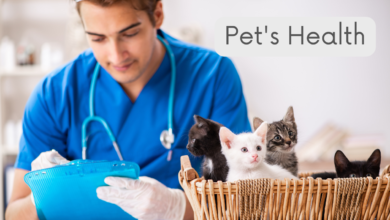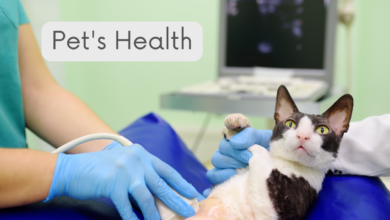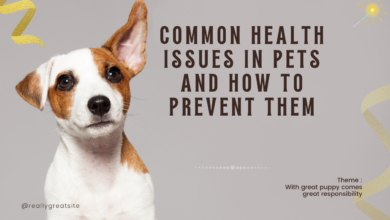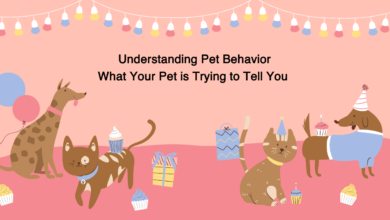
Vaccinations are a fundamental aspect of pet healthcare that helps protect against a variety of serious and potentially fatal diseases. Just like in humans, vaccines stimulate your pet’s immune system to recognize and combat specific pathogens, providing protection against infections.

Understanding the importance of pet vaccinations and ensuring your pet is up-to-date with their shots is essential for their long-term health and well-being. This article explores what pet vaccinations are, why they matter, and how to keep your pet’s vaccination schedule on track.
Understanding Pet Vaccinations
Pet vaccinations involve administering a vaccine that contains a small, harmless part of a pathogen or a modified version of it. This stimulates the immune system to produce antibodies and memory cells that can recognize and fight the actual pathogen if encountered in the future.
- Types of Vaccines:
- Core Vaccines: These vaccines are essential for all pets, as they protect against common and potentially life-threatening diseases. Core vaccines for dogs typically include rabies, distemper, parvovirus, and adenovirus. For cats, core vaccines include rabies, feline herpesvirus, calicivirus, and panleukopenia.
- Non-Core Vaccines: These vaccines are recommended based on the pet’s lifestyle, geographic location, and exposure risks. For dogs, non-core vaccines might include those for leptospirosis, Bordetella (kennel cough), and Lyme disease. For cats, non-core vaccines could include those for feline leukemia virus (FeLV) and feline immunodeficiency virus (FIV).
- How Vaccines Work:
- Immunization Process: Vaccines work by introducing a small, controlled amount of the pathogen or its components into the pet’s system. This stimulates the immune system to produce a response, including the generation of antibodies and memory cells.
- Boosters: Most vaccines require booster doses to maintain immunity. Boosters help reinforce the immune response and ensure long-term protection.
Why Vaccinations Matter
Vaccinations are crucial for several reasons, including disease prevention, public health, and overall well-being. Here’s why keeping your pet up-to-date with their vaccinations is so important:
- Disease Prevention:
- Protects Against Serious Diseases: Vaccines protect your pet from serious diseases that can be difficult or impossible to treat once contracted. For example, parvovirus in dogs and feline leukemia in cats can be fatal if not prevented.
- Reduces Disease Spread: Vaccinating pets helps reduce the spread of infectious diseases within the pet community, protecting both individual animals and the population as a whole.
- Public Health:
- Prevents Zoonotic Diseases: Some pet diseases, like rabies, can be transmitted to humans. Vaccinating pets against these diseases helps protect not only the pets but also their human companions.
- Community Health: Widespread vaccination reduces the overall incidence of disease in the community, contributing to public health and safety.
- Legal Requirements:
- Rabies Vaccination: In many regions, rabies vaccination is required by law. This vaccination is crucial for preventing the spread of rabies, a fatal disease that affects both animals and humans.
- Long-Term Cost Savings:
- Preventative Care: Investing in vaccinations is a cost-effective measure compared to the potential expenses associated with treating serious diseases that could have been prevented. The cost of a vaccine is typically much lower than the cost of treating a disease, which may involve expensive medications, extended veterinary care, and possible hospitalization.
- Improves Quality of Life:
- Healthy and Active Pets: Vaccinated pets are less likely to contract serious illnesses, allowing them to enjoy a healthier and more active life. Preventing disease ensures that pets can engage in regular activities and enjoy their time with their families.
Vaccination Schedule
Following an appropriate vaccination schedule is essential to ensure your pet receives the full benefits of immunization. Vaccination schedules vary based on factors such as the pet’s age, health status, and risk factors. Here’s a general guideline for common vaccines:
- Puppies and Kittens:
- Initial Vaccinations: Puppies and kittens typically start their vaccination series at around 6-8 weeks of age. They receive a series of vaccines every 3-4 weeks until they are about 16 weeks old.
- Core Vaccines: Core vaccines are administered during this series, including those for distemper, parvovirus, and rabies for dogs, and herpesvirus, calicivirus, and panleukopenia for cats.
- Non-Core Vaccines: Depending on the pet’s risk factors, non-core vaccines may be introduced later in the series or at the discretion of the veterinarian.
- Adult Pets:
- Booster Shots: Adult pets typically receive booster shots to maintain immunity. The frequency of boosters depends on the vaccine and the pet’s risk factors. Commonly, core vaccines are boosted every 1-3 years.
- Health Assessments: During regular veterinary checkups, your vet will assess your pet’s health and adjust the vaccination schedule as needed.
- Senior Pets:
- Tailored Vaccination: Senior pets may have different vaccination needs due to their age-related health changes. Your veterinarian will provide recommendations based on the pet’s overall health and risk factors.
Ensuring Your Pet’s Vaccination Compliance
To keep your pet’s vaccinations up-to-date and ensure compliance, consider the following steps:
- Maintain Records:
- Vaccination History: Keep detailed records of your pet’s vaccinations, including dates and types of vaccines administered. This information is crucial for tracking boosters and ensuring timely updates.
- Vet Reminders: Set reminders for upcoming vaccinations and veterinary appointments to stay on top of your pet’s health care needs.
- Consult Your Veterinarian:
- Regular Checkups: Schedule regular veterinary visits to discuss your pet’s vaccination needs and health status. Your vet will provide guidance on any necessary updates to the vaccination schedule.
- Address Concerns: If you have any concerns about vaccines or their effects on your pet, discuss them with your veterinarian. They can provide information and address any questions you may have.
- Travel and Boarding:
- Travel Requirements: If you plan to travel with your pet or board them at a facility, ensure their vaccinations are up-to-date. Many boarding facilities and travel destinations require proof of vaccination to ensure the health and safety of all animals.
Common Myths and Misconceptions
Addressing common myths and misconceptions about pet vaccinations can help pet owners make informed decisions:
- Myth: Vaccinations Are Not Necessary for Indoor Pets:
- Fact: Even indoor pets can benefit from vaccinations, as diseases can be transmitted through various means, such as visitors or other pets. Vaccinations help provide a safety net against unexpected exposures.
- Myth: Vaccines Cause Side Effects:
- Fact: While some pets may experience mild side effects, such as temporary soreness or lethargy, serious reactions are rare. The benefits of vaccination far outweigh the risks of potential side effects.
- Myth: Natural Immunity Is Better:
- Fact: Natural immunity can result from a disease but often involves a much higher risk of severe illness. Vaccines provide a safer way to develop immunity without exposing pets to the full-blown disease.
Conclusion
Pet vaccinations are a vital component of your pet’s healthcare regimen, offering protection against a range of serious and potentially life-threatening diseases. By understanding the types of vaccines, adhering to a vaccination schedule, and addressing common misconceptions, you can ensure your pet remains healthy and protected. Regular veterinary checkups and staying informed about vaccination requirements will help you make the best decisions for your pet’s health. Vaccinating your pet not only contributes to their well-being but also plays a crucial role in community health by preventing the spread of infectious diseases.





